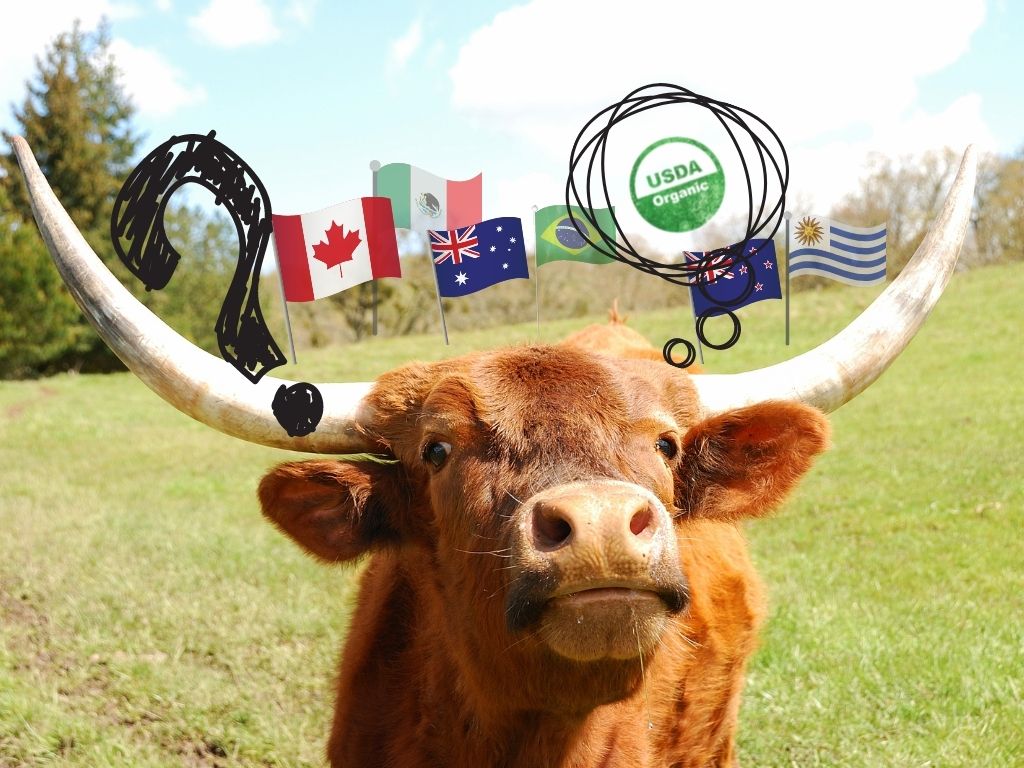The Texas Longhorn is on its way to becoming nothing more than a college mascot.
A handful of multinational beef conglomerates led by Brazil’s JBS, Tyson Foods, and Cargill are the reason why your sirloin and burger patties are seeing inflated prices.
The average retail price for beef is about $6.30 per pound, a record high, according to industry data. Cattle producers here get $1.19. They’ve never seen a spread that wide between retail prices and what the likes of Tyson and Cargill pay them for it.
One would think that prices would be in decline. All of the major beef producers consider this one big global market, so an American cattle rancher is competing for price against an Australian, a Canadian, and a Brazilian, who then overproduce to sell to the U.S. instead, keeping prices for the monopolies low. But, judging by beef price inflation alone, this global market for abundant cattle is doing nothing for the consumer.
American Beef: Not For Dinner
On May 19, Senators Mike Rounds (R-SD) and Tina Smith (D-MN) began circulating a letter addressed to U.S. Attorney General Merrick Garland about what they described as a serious crisis in the U.S. cattle industry. Their goal was to get as many Members of Congress (nearly 200 to be exact) to sign on to the letter to pressure the government to find out what’s causing the quasi-blacklisting of American-sourced beef in favor of imports.

Sen. Mike Rounds attending a video conference call with ranchers on May 19.
Ranchers held a chat with Sen. Rounds to tell them that current trends were “devastating” and “damaging” to their industry.
“My family has cattle producers in it,” said Rounds. “They’ve talked about for quite a few years about the discrepancies of what they see their friends pay in the supermarket for beef, and what they are getting when they take their cattle to market. We need the U.S. Attorney General to look into anti-trust laws.”
From the letter:
“The major packing companies realized significant profits, while both U.S. beef consumers and independent cattle producers paid the price. These large price disparities are leading independent cattle producers to go broke and causing consumers to pay an unnecessary, over-inflated premium on beef.”
The letter also says trade policies with Mexico and Canada, and lack of country of origin labeling for beef, are contributing to the current cattle industry crisis.
Over the last 30 years, there has been no major expansion of beef packing capacity in the United States. Beef packers continue to bring foreign beef into their facilities and place “Product of the U.S.A.” on the labeling because that is where the beef was processed into hamburger patties and filet mignons, for example.
Without mandatory country of origin labeling for beef – packers are provided a federal sanction to undercut American producers and substitute American ranchers with that of foreign countries. While there is nothing wrong with importing Mexican or Canadian beef, when it is done at the detriment of local production then it becomes an economic headwind for states where farming and ranching is a considerable part of the tax base and societal well-being.
Multinational meatpackers also take advantage of their global market to pit U.S. ranchers with ranchers from around the world. In other words, the U.S. cattle market is nearly the same as the Brazilian one, which benefits from a weaker currency, different environmental regulations, and so on.
These captive supply practices allow meatpackers to exert more control, limit competition, and depress sales in the live cash market. If they were turning those savings over to consumers that would be one thing.
The U.S. is the largest beef producer in the world. American cattle prices tend to set the world price for cattle and are typically pegged a little below what ranchers get here. There have been some anomalies over the years when U.S. cattle prices dropped and Australia was more expensive. What’s happening with pricing today, ranchers suspect, is that the big, global meatpackers are artificially reducing demand for American cattle by limiting their capacity and consumers are being told they have to pay inflated prices for beef because U.S. cattle supplies are low. Meanwhile, they are importing from other markets, where there is an oversupply. This led to record imports in 2020, with Canada, Australia, Mexico, New Zealand, Nicaragua, Brazil, and Uruguay being the main suppliers, in that order.
“The consumers are the ones you need to reach, who are tired of paying this for beef,” said Rounds. “When you look at the prices the ranchers are receiving and what the beef is selling for in the supermarket…are they playing with us fairly on this? Quite frankly, there is a whole lot of us who don’t think they are,” he said, adding that members of Congress from non-farm states also need to address this issue as it impacts food inflation at the local level.













